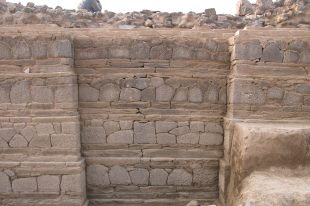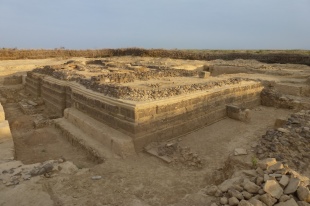
Sponsored and founded by AICS (Italian Agency for Development Cooperation) of the MAECI (Italian Ministry of Foreign Affairs and International Cooperation), VITAE - SUSTAINABLE VALORISATION OF THE ERITREAN HERITAGE ADULIS ARCHAEOLOGICAL SITE PROJECT - has officially kicked off. The specific objective of this project is to boost the impact of long-term archaeological research and link it to the promotion of sustainable development at local level, focusing on the Adulis Archaeological Site in Eritrea as a test case.
The research activities rely on two pillars:
- from the archaeological perspective: an interdisciplinary model with the prevalent use of remote sensing and non-invasive techniques, such as geomatics, geophysics and surface survey;
- from the point of view of social and environmental impact: designing and creating a sustainable archaeological park, in which the preservation of cultural testimonies is linked to the protection of the environment by renewable energy and sustainable management of water supplies and mobility.
By achieving its specific objective, the action will contribute to the project’s overall aim to design new strategies for heritage sustainable development.
The action will lead to the achievement of socio economic and cultural value. This pattern will come from understanding the potential of past civilization to support problem solving for the present society and suggest viable alternatives for territorial planning, creating better living conditions for local communities, while preserving the planet and its resources.
Main activities and related expected outcomes.
Based on this problem analysis, four are the main results of the proposed actions:
- TERRITORIAL CONTEXT KNOWLEDGE AND ANALYSIS - A Comprehensive assessment of the territorial context from the cultural and environmental perspective is completed.
- ADULIS SUSTAINABLE ARCHAEOLOGICAL AND NATURAL PARK - The Adulis Sustainable Archaeological and Natural Park is open as the first of its kind in Sub Saharan Africa and equipped with the right infrastructure to provide energy, water, accessibility and mobility.
- ADULIS ARCHAEOLOGICAL SITE: EXCAVATION, KNOWLEDGE AND PRESERVATION - A sustainable methodological approach to site excavation and management is set up and applied to Adulis Archaeological Site.
- EMPOWERMENT AND CAPACITY BUILDING, GOOD PRACTICES - A new generation of officers and researchers is available within the country to assure ownership and long-term sustainability of the process.
The inter and multi-disciplinary project involves partners like the Department of Architecture and Urban Studies (Prof. Susanna Bortolotto, the architect Nelly Cattaneo, in collaboration with Prof. Serena Massa from the Università Cattolica del Sacro Cuore di Milano), the Department of Civil and Environmental Engineering (Prof. Alberto Guadagnini, Prof. Matteo Colombo, Prof. Giovanni Porta), the Department of Energy (Prof. Fabio Inzoli, Prof. Emanuela Colombo, Prof. Riccardo Mereu) and the Department of Mechanical Engineering (Marco Bocciolone, Emanuele Zappa e Simone Cinquemani).
Coordinated by DMEC, the project values 2.3 million euros, of which 2.07 million euros granted directly by AICS.




